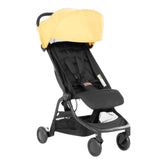5 Little Behavior Problems in Kids That Can Cause Big Issues

Updated 26 Dec 2024
Raising kids is tough. If you’ve just had a frustrating interaction with your child over their attitude or conduct, it may leave you asking yourself, “What is normal?” or “Do these types of behavioral problems come up with all kids?” Whether you’ve got a kiddo who is stubborn and headstrong or one who’s just a spirited fireball, many child behavior problems are quite common at various points of their development. How you choose to respond as a caregiver is a significant factor in whether or not your child will continue that behavior in the future.
Most Common Behavioral Issues in Children
Let’s take a closer look at some common behavioral problems and how to handle them.
1. Lying or fibbing
Kids are motivated to lie for three primary reasons: getting attention, staying out of trouble, or improving their self-esteem. Understanding why they’re lying can help you choose how to handle the situation best. If you know your kid is lying, question them directly: “Is that truly what actually happened, or is that what you would’ve liked to have happened?” State the consequences of lying, and remind them to tell the truth. Commend your child for being truthful, particularly when the truth gets them in trouble: “I’m proud of you for telling me the truth about coloring on the wall after I told you not to. I’m still going to take away your markers and crayons today, but because you told me the truth you won’t lose them for tomorrow also.”
2. Temper Tantrums
Temper tantrums are a common behavioral issue in very young children, but they can also become an issue for older ones as well if they aren't managed quickly. Ignoring the behavior is often a useful tactic when it comes to handling tantrums. Let your kids know that stomping, screaming, or throwing themselves on the ground is not an effective way for them to get what they want. Teach them better and more useful ways to communicate their needs and have those needs met.

3. Insubordination
Whether your little one tunes you out when you tell them to do something or comes back at you with a full-on “No!” while looking you dead in the eye, insubordinate behavior is challenging to manage. That said, it’s also one of the most common behavior problems in 3-year-olds and older. When your child doesn’t obey, give them a warning that the behavior needs to change. Let them know they will have a consequence they won’t like if the behavior doesn’t change. Using “If-Then” statements is an effective way to do this. For example, “If you don’t stop throwing the toy, then I’m going to take it away.” Only use a warning if you are willing to follow through with the consequence. Then, follow through with the consequence each time you issue a warning. If you don’t, your child won’t take the warning seriously.
4. Impulsiveness
Physical impulsiveness is typical in young children. Hitting, for example, does not fall into the category of unusual 3-year-old behavior problems. Older kids are more likely to be verbally impulsive, blurting out mean, hurtful statements. You can help your little one reduce impulsive behavior by reminding them to stop and think before speaking or acting. Praise them when they do this: “Good job using your words when you were upset,” or “You made a good choice today by walking away instead of hitting.” Teaching kids how to monitor their emotions, manage their anger, and regain self-control will help them learn to control their impulsiveness.
5. Lack of respect
Mocking, throwing objects, name-calling, and other disrespectful behavior is not unusual among young children. The real problem, though, is that disrespectful behavioral problems in 5-year-olds can easily morph into disrespectful teenager problems if they aren’t handled appropriately. If your little one is seeking attention with their disrespectful behavior, ignore them. Don’t reward rude, negative behavior by reacting. If your kid is using hurtful, disrespectful language, remind them firmly (and without anger) about using kind words. Be explicit that that type of language will not be tolerated at home.

How to Deal With Child Behavior Issues: Setting Rules and Applying Consequences
Rules help kids learn right from wrong, help keep kids safe, and teach them how to respectfully interact with others. Kids raised without rules generally have a tougher time with social adjustment. Here are a few ways you can use limits and rules to address behavior problems and discipline your child effectively:
- Praise positive behavior.
- Apply rules consistently.
- Avoid nagging and making threats without consequences.
- Don’t nag or fuss at your child for trivial behavior that doesn’t matter.
- Be clear about what behavior is expected, and be sure that your expectations are reasonable for the child’s age.
- Make the consequences brief and apply them as soon as possible.
- Prioritize rules. Disciplining behavior that keeps them safe is most important, followed by correcting behavior that harms others, and then behavior like whining, temper tantrums, and interrupting.
- Understand and accept age-appropriate behavior. Accidentally spilling a glass of water is normal behavior for a toddler. It is not willful insubordination. A kid who refuses to put on a bicycle helmet after repeated warnings, however, is being intentionally defiant.
- Give reprimands firmly and calmly. Shouting and verbal abuse are no less damaging than physical punishment.
The Takeaway on Behavior Problems in Kids
Child behavior problems are best managed with consistent discipline methods. Bear in mind that it’s perfectly normal for kids to take two steps forward and one step back when it comes to learning appropriate behavior. They may start acting out again after months of compliance. They may even temporarily regress back to baby talk. These are normal phases and stages of the developmental process most children experience.
However, if your child is not responding to your discipline methods or if their behavior is harming others, disrupting school, or damaging friendships, speak with your pediatrician. They can offer additional insight and feedback. They can also recommend whether your child may need to be evaluated for any potential underlying issues, like learning disabilities or medical conditions.









